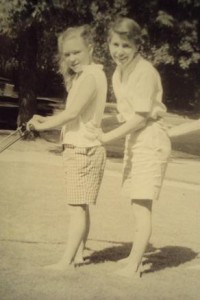I remember the first moment the word “widow” entered my mind. It was about a year ago, just a few days before Nate and I were told he had terminal pancreatic cancer. I was sitting in a warm tub in the early morning hours after Nate had had a bad night with intense back pain. He was finally asleep, and I grabbed the chance to decompress (and think) behind closed doors.
The tub wasn’t even full before I was weeping, panicky at the unknowns in our immediately future. What if Nate really had cancer? What if he died? What if I became a widow?
Feeling isolated as a woman who’d just moved 110 miles away from her sister, her girlfriends, her prayer groups and her church, I clutched. But God, the tender Father, interrupted that downward thought-spiral by flooding my mind with a list of caring friends. These were women who would come to me if I asked, women who were faithful to God but also to me. They were people I could call at any hour, confident they would give me good counsel and be willing shoulders to cry on. In thinking of them, I knew I would make it… even if I became a widow.
When I climbed out of the tub, I felt much better than when I’d climbed in, even though our circumstances hadn’t changed. But God had spoken to my need, demonstrating again how close he was. And that’s one of the awesome things about him. He’s intimately aware of where we stand at every given moment, knowing precisely what we need. My focus, and also that of Nate and I together as a couple, had been riveted on his health issues for many months. God knew my meltdown was coming, and he knew exactly when. He was ready.
I’ve learned God is practical and that he faithfully rushes toward our needs with sufficiency. He perfectly measures out ideas and vigor to cover every situation. As a doctor matches drugs to a patient’s illness, God matches aid to his children’s crises.
A sensible daily prayer for all of us is, “Lord, prepare me for whatever’s coming, and when it gets here, show me what to do.”
And he will.
He did it during my bath-time meltdown and has repeatedly rescued me throughout the last bumpy year. I still crave and pray for his preparation, because new crises will surely come. But I’ve witnessed how superbly he answers that prayer, and I don’t ever want to be caught weeping over bad news without having first invited God to get me ready for it.
As for my God-inspired list of women supporters, as I thought about each name he’d given me, I realized how amazing his help really was. Every single one on his list was a widow.
“Such is the confidence that we have through Christ toward God. Not that we are sufficient in ourselves to claim anything as coming from us, but our sufficiency is from God.”
(2 Corinthians 3:4-5)



